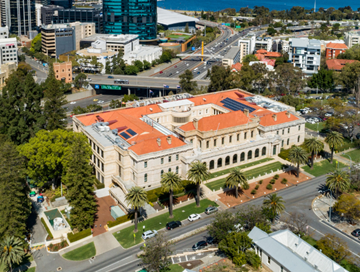How a ban on rent increases will impact tenants in the long run
22 September 2020"While many are happy that the ban on rent increases has been extended and their rent will not be increased, things aren’t as black and white as this. Find out what this can mean for you as a tenant or landlord."

While many tenants are certainly happy that the ban on rent increases in Western Australia has been extended until 28 March 2021 and their rent will not be increased, things aren’t as black and white as this and will ultimately create more problems for tenants.
How does this work?
At the moment the vacancy rate is at a 12-year low of 1.3 per cent, with only approximately 3,000 rental properties in Perth currently available for tenants to lease.
To put this into perspective, just one year ago there were 6,599 properties available to rent and the vacancy rate was 2.6 per cent.
Low vacancy rates are normally a trigger for investors to enter the rental market which increases stock levels, however due to the Residential Tenancies (COVID-19 Response) Act, investors appear reluctant to buy.
Why does this impact tenants?
Typically, when the vacancy rate lowers and competition builds for the current rental stock, rents start to increase. This is generally a gradual increase over a longer period of time and at smaller increments such as $10 per week.
If the current ban on increasing rents is lifted in March 2021, it will be reasonable to assume that landlords will have to significantly increase rents to match the market.
This will mean that tenants do not have the opportunity to have their rent increased, in small, manageable increments but will probably face a sharp price correction.
How does this impact landlords?
While most landlords are willing to help those that are struggling due to the impacts of COVID-19, the vast majority of West Australians are now back to work and able to meet their rental obligations.
Landlords have experienced no income growth in more than three year as the median rent stayed at $350 for 12 consecutive quarters.
Just as the market looked like it was beginning to recover, the legislation has stopped rents increasing, even minimally, despite the majority of tenants not being financially impacted by COVID-19.
Therefore, more investors are being forced to sell their investment property which also adds pressure to rental stock as it usually moves the property out of the rental market to an owner-occupier.
What can you do?
Have your voice heard by joining REIWA’s campaign: A fair go for landlords.
REIWA understands that there are quite a few tenants and landlords out there who are struggling with the extension, which is why we are calling on everyone to tell us their story.
Please email [email protected] with your information on how you are experiencing the current rental situation.
767bbbc6-4993-4f16-8933-e9b2baaac7a0.tmb-rcarousel.jpg?sfvrsn=8cf14270_1)








